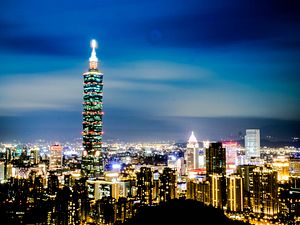A few days after the election of Donald Trump, the president-elect had a phone call with Chinese President Xi Jinping and discussed mutual relations. There was a murmur of approval in the international press: things might be turning out all right after all.
A couple weeks later, Mr. Trump received a similar call from President Tsai Ing-wen of Taiwan, and also discussed mutual relations. A normal day in the life of the president-elect, one would think.
However, immediately there was a firestorm in the press, with claims that this move “violated longstanding U.S. policy,” that the call was “controversial,” “raised red flags,” “a likely affront to China,” and that Trump “risks [a] China rift.”
What is the problem here? Yes, the president-elect has a penchant for flaunting conventions and for disregarding conventional wisdoms.
But a much more fundamental problem is that our policies have not kept up with the times, and that our terms of engagement with a vibrantly democratic Taiwan are being dictated by an increasingly belligerent – and still very repressive – China.
What we now refer to as the U.S. “one China policy” has its basis in the 1970s, when two rather repressive regimes, Mao Zedong’s Communists in Beijing, and Chiang Kai-shek’s Nationalists in Taipei, both claimed to be the sovereign ruler of China.
We had to chose, and by the late 1970s the pendulum swung in favor of Beijing. The United States recognized Beijing as the sole government of China in 1979. In that context, “one China” thus meant we recognize one government as the government of China.
However, as far as Taiwan is concerned we decided on informal relations, and only “acknowledged” (in diplomatic parlance “take note of”; see the three Communiqués) Beijing’s position.
The United States’ own position is that Taiwan’s status is “undetermined” (in keeping with the 1952 San Francisco Peace Treaty, when Japan gave up sovereignty) and that its future should be determined peacefully (1979 Taiwan Relations Act) and with the democratic consent/assent (President Bill Clinton 1999) of the people of Taiwan.
However, this important nuance is often lost in the shorthand used by the media and by not a few uninformed politicians and commentators, who opine that the policy means that “Taiwan is part of China.” Incorrect!
Now fast forward to the present: between the dark days of the late 1970s and now, Taiwan made a momentous transition to democracy. It morphed from a repressive authoritarian regime under Chiang Kai-shek, claiming to rule all of China, into a vibrant democracy enjoying the fruits of a long and arduous struggle for freedom.
However, the U.S. “one China” policy has not kept up with that fundamental shift on the ground: it still prevents diplomatic relations, keeps Taiwan in international isolation, and prohibits contacts with high officials in a democratically-elected government. There is something wrong with that picture.
Thus, we need to pull ourselves out of the self-imposed strictures of the “status quo” and start a process toward more normal relations with Taiwan, treating it like any other one of our other friends and allies in the world. We also need to help end the international diplomatic isolation of the democratic island-nation.
Such a move would actually also be good for China and the region: while initially there would undoubtedly be strong protests, a normalization of relations between the rest of the world and Taiwan should give China an opportunity to move away from the old contradictions and animosity dating back to the Chinese Civil War.
Beijing needs to come to grips with the new and democratic Taiwan, and develop a more constructive policy based on mutual recognition and peaceful coexistence as friendly neighbors. That would bring a much more lasting peace and stability to the region than the present nebulous and precarious “status quo.”
Gerrit van der Wees is a former Dutch diplomat who teaches History of Taiwan at George Mason University

































